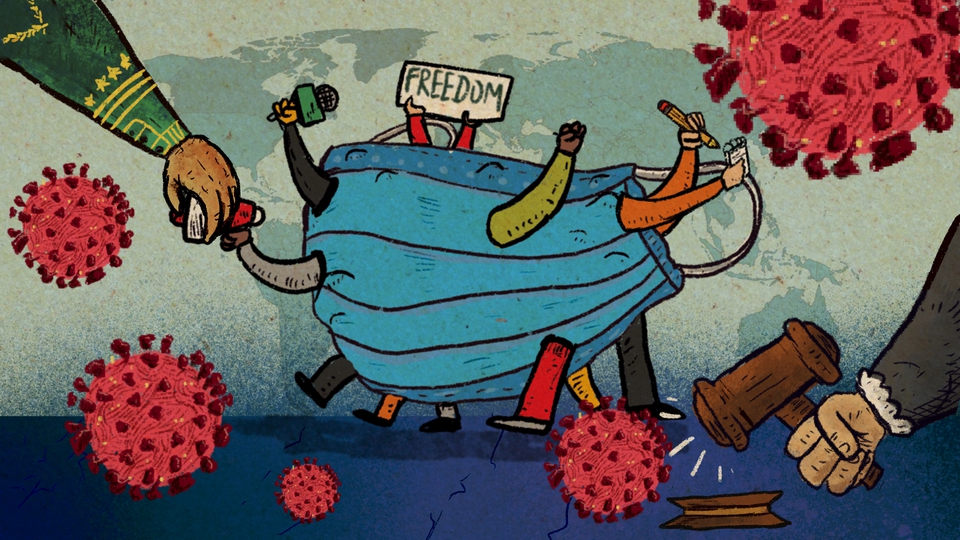Freedom of Expression and the COVID-19 Pandemic: A snapshot of restrictions and attacks
Read CIVICUS' May Covid-19 brief concerning freedom of expression throughout the pandemic, and how research has shown that censorship, attacks against journalists and the detention of journalists are among the most common civic space violations.
"This brief aims to provide an overview of the most common trends recorded under the pandemic so far that have negatively impacted on the right to the freedom of expression.
Civic Space updates from our research partners form the basis of this analysis, covering a period from January 2020 to February 2021. The information in these civic space updates is then triangulated, verified and tagged by the CIVICUS team. In addition, for the purpose of this report, the CIVICUS team disaggregated and systematised the data to analyse those freedom of expression violations committed as a direct response to the pandemic.
The freedom of expression is indispensable for the full development of a person and essential for any democratic society. The right to seek, receive and impart information is essential during a public health emergency. While international human rights law permits restrictions on the freedom of expression, it does so only if certain conditions are met. Restrictions must be provided by law, pursue a legitimate aim and be strictly necessary and proportional in relation to achieving that aim.
These principles cannot be ignored in the context of efforts to address the pandemic. States across the globe, however, have used the pandemic to impose unjustifiable restrictions on the freedom of expression, imposing censorship on those speaking out and those critical of governments, enacting legislation that allows them to suppress dissent and turning a blind eye when journalists are attacked for doing their work.
The CIVICUS Monitor identified the following trends:
- The use of restrictive legislation to silence critical voices, including through the proposal, enactment and amendment of laws on the basis of curbing disinformation.
- Censorship and restrictions on access to information, including through the suppression or imposition of content relating to COVID-19 and the suspension of media outlets due to their COVID-19 coverage.
- Attacks on journalists over their reporting of the pandemic, including physical attacks, harassment, intimidation and arbitrary detention."
